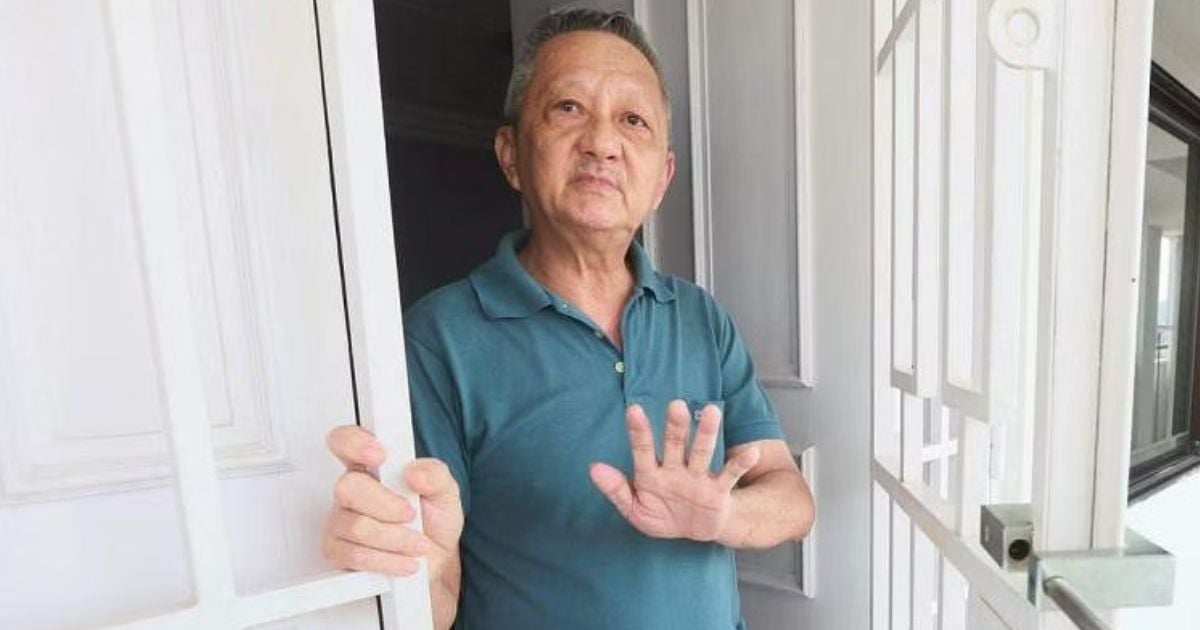Scammers are getting more and more creative in the way that they cheat others of their hard-earned money.
Just last year, over $660.7 million was lost to scammers in Singapore. From pretending to be Shopee employees over WhatsApp to impersonating the Traffic Police in Singapore, the scammers have played all sorts of roles.
Scamming is getting so bad that Singapore is also thinking of enacting a new law which will allow them to take down websites used for scams and other malicious activities. This bill has just undergone its first reading, so its enactment may still be some time away.
Now, it seems that scammers have been taking advantage of the hot rental market to make a quick buck from their victims.
Here is a story of a homeowner whose life was upended when his address was used by scammers trying to cheat prospective renters.
Man Living in Toa Payoh Had His Home Address Used in Multiple Scams
Mr Lin (Hanyu pinyin) is the homeowner of a flat at Block 11, Toa Payoh Lorong 8. Just last Saturday, on 20 May, a young lady “renter” turned up at his doorstep.
Without skipping a beat, Mr Lin delivered the shocking news to this young lady—that she was a victim of a scam, like many others before her.
This unfortunate young lady was Ms Liu (Hanyu pinyin), a 23-year-old salesperson. After she realised that she had been scammed, she made a police report to report the scam.
She also called the news hotline for Shin Min to share her story.
According to Ms Liu, who spoke to Shin Min, she had found Mr Lin’s “unit for rent” on Facebook Marketplace. The listing had mentioned that the entire flat was available for rent.
Facebook Marketplace is a “destination on Facebook where people can discover, buy and sell items”.
One of the pages on the Meta site that describes “unacceptable business practices” on Facebook Marketplace mentions that Meta does not allow “advertisers to run ads that promote products, services, schemes or offers that use identified deceptive or misleading practices, including scams to take money from people or access personal information.”
It also encourages people to report a Facebook Page which is impersonating another user. The reporter does not need to have a Facebook account to lodge a report.
Interestingly enough, the steps that Facebook lists in order to report such an impersonation involve visiting the “Scams and Fake Pages” tab.
We can only imagine how many scammers there are prowling the web, ready to capitalise on the desperation of their next victim.
Ms Lin, a victim of the bogus Facebook Marketplace listing, shared that she had paid over $5,000 in deposit to the scammer before she even checked out the actual location of where she would be renting.
She only remembered that she should visit the flat in person and speak to the “landlord” to work out the details of the rental after the money was transferred.
Unfortunately, when Ms Lin turned up to discuss these details with the “landlord”, she was met with the harsh truth from Mr Lin. She had been scammed of her hard-earned money, and that there was no flat available for her to move into.
Do you think this is a situation where the buyer failed to do enough due diligence to protect themselves from the dangers of renting online, or should Facebook have done more to protect these prospective buyers using their Facebook features?
Mr Lin, who is close to his seventies, told reporters that he had been living in the same flat for over 23 years, and it had always been relatively peaceful. He did not encounter such incidents until recently.
In fact, the peace had only been broken in the past half a year or so, when at least seven different groups of people arrived at his doorstep trying to seek a “refund” of the rent they paid. Others had also tried to move into his unit.
It was then that Mr Lin realised that there was a scammer out there who had been masquerading as the intermediary of his apartment to scam others.
Mr Lin shares that the scammer’s tactics are quite elaborate, as they have pictures of Mr Lin’s home and use other people’s information and name when referring to Mr Lin’s address. These images and false information are used to populate the listings that act as a hook to draw in the next prey.
We wonder how the scammers even managed to get the pictures of the interior of Mr Lin’s home. Could these scammers have entered the house under some other pretence to take pictures? Or could they have taken pictures of the unit through an open door?
It is unfortunate that Mr Lin has to be the one who breaks the tragic news to these rental hopefuls who turn up in his house, some of them paying as much as $6,000 to the scammers.
In response to this increasing number of scams, Mrs Lin expressed that it is difficult to prevent such incidents from happening, and she can only hope that the scammers stop using their home address in these unethical schemes.
One thing is for sure; everyone has to be ever-vigilant if they want to protect themselves from falling prey to these scammers.
